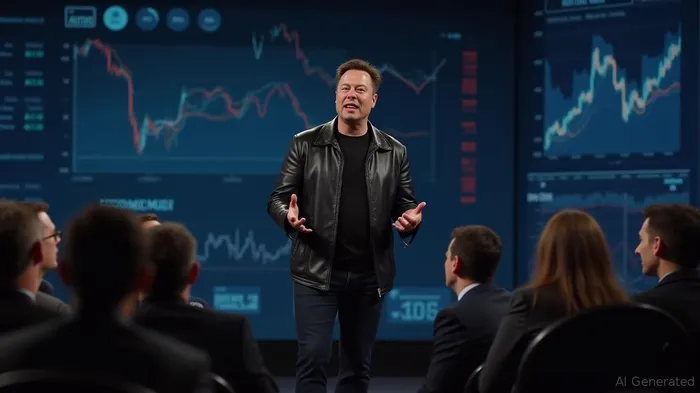Elon Musk Criticizes US Debt Bill, Sparks Bitcoin Maximalist Speculation
Max Keiser, a prominent Bitcoin advocate and advisor to ElEL-- Salvador’s President Nayib Bukele, has suggested that Elon Musk, the CEO of TeslaTSLA-- and SpaceX, is on the verge of becoming a "full Bitcoin maximalist." This prediction comes in the wake of Musk's vocal criticism of the Republican "One Big Beautiful Bill Act," a legislative proposal that aims to extend the 2017 tax cuts and raise the statutory debt ceiling by approximately $5 trillion. Musk's concerns center around the potential fiscal implications of this bill, which he believes could lead to unsustainable levels of national debt and interest payments.
Musk's critique of the bill highlights the alarming trajectory of the national debt, with interest payments already exceeding $100 billion per month. He warns that if current spending patterns continue, the government may soon be left with insufficient funds to cover essential services such as Social Security, medical care, and defense. This perspective aligns with the views of many Bitcoin maximalists, who argue that Bitcoin serves as a reliable hedge against fiscal irresponsibility and inflation.
The exchange between Musk and CoinbaseCOIN-- CEO Brian Armstrong further fueled speculation about Musk's potential shift towards Bitcoin maximalism. Armstrong's post, which emphasized the importance of reducing the national deficit and paying down debt, received a tacit endorsement from Musk in the form of a US-flag emoji. This interaction was interpreted by many as a sign that Musk is increasingly sympathetic to the idea of Bitcoin as a reserve currency.
Investors and analysts quickly responded to the exchange, with some suggesting that Musk could soon adopt a Bitcoin treasury strategy similar to that of MicroStrategyMSTR--. This would involve allocating a significant portion of Tesla's and SpaceX's reserves to Bitcoin, further solidifying the cryptocurrency's role as a store of value. While Musk's comments do not explicitly confirm such a move, they do indicate a growing alignment with the principles of Bitcoin maximalism.
Keiser, in a series of posts, doubled down on his prediction, suggesting that Musk's frustration with fiat-driven debt dynamics reflects a growing realization that Bitcoin is the only exit strategy. He also predicted that Bitcoin could surge to $2.2 million in the near future, emphasizing that everything, including traditional financial systems, is either relatively or absolutely a Ponzi scheme when compared to Bitcoin.
The broader implications of Musk's potential shift towards Bitcoin maximalism are significant. As one of the most influential figures in the tech and finance sectors, Musk's endorsement of Bitcoin could have a profound impact on its adoption and legitimacy. It would also underscore the growing recognition of Bitcoin as a viable alternative to traditional financial systems, particularly in the face of mounting fiscal challenges.
However, it remains to be seen whether Musk's recent statements represent a genuine ideological shift or merely another thought experiment. Regardless, his critique of US debt dynamics has resonated with Bitcoin maximalists, who see it as validation of their long-held beliefs about the need for a decentralized, inflation-resistant currency. As the debate continues, the cryptocurrency community will be closely watching Musk's next moves, eager to see if he follows through on the predictions of those who believe he is on the brink of becoming a full Bitcoin maximalist.

Quickly understand the history and background of various well-known coins
Latest Articles
Stay ahead of the market.
Get curated U.S. market news, insights and key dates delivered to your inbox.

Comments
No comments yet